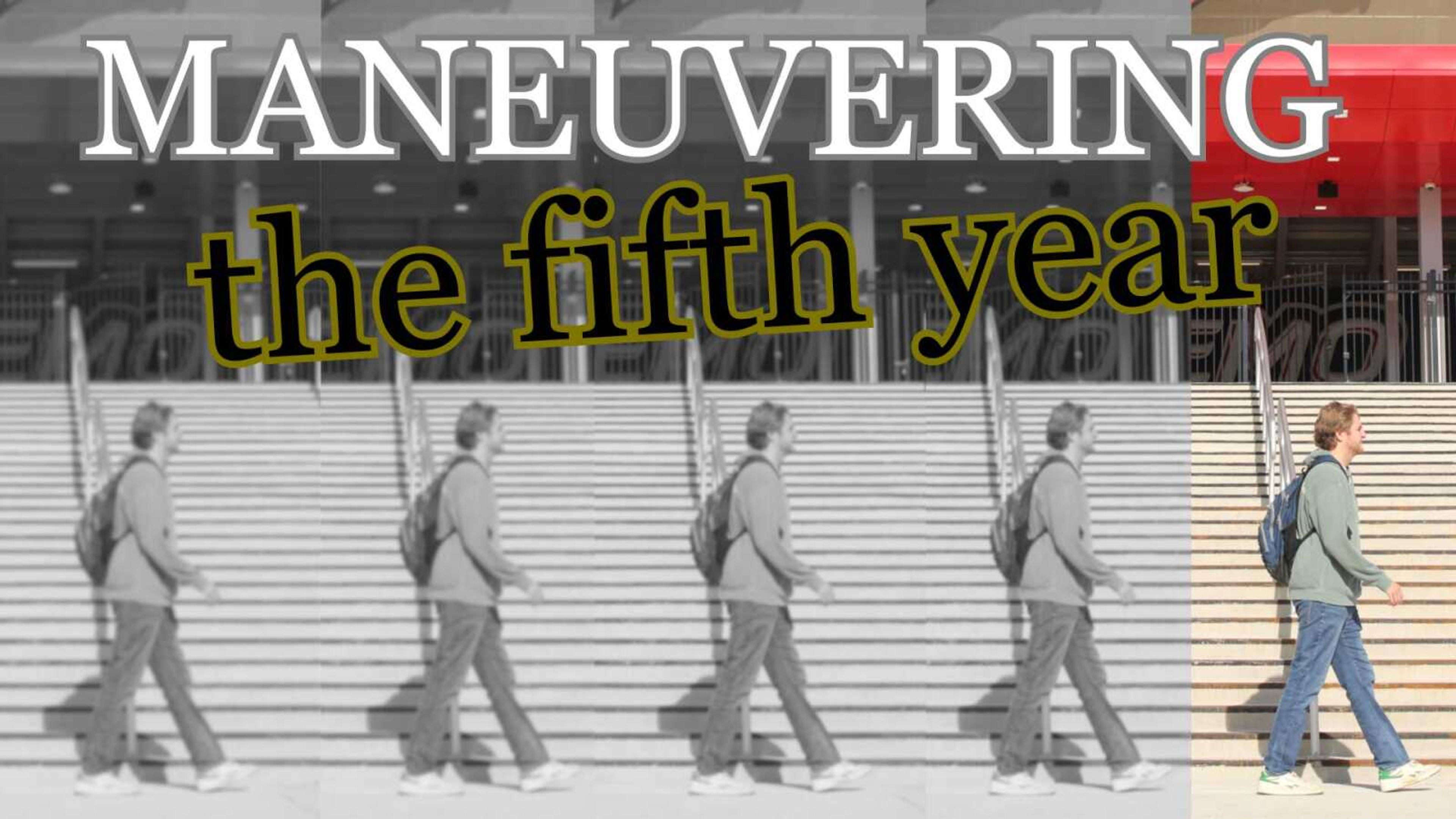Column: The plight of mid-major basketball in the transfer portal era
I’ve had time to think about it, and I can think clearly about the situation. A part of me thought Phillip Russell would stay and Southeast Missouri State University men's basketball could build something special, but looking back on the season, on his season, I guess I was being naive. Russell is entering his name in the transfer portal, meaning SEMO will likely lose their best player. Where have I seen this movie before?...
I’ve had time to think about it, and I can think clearly about the situation. A part of me thought Phillip Russell would stay and Southeast Missouri State University men's basketball could build something special, but looking back on the season, on his season, I guess I was being naive. Russell is entering his name in the transfer portal, meaning SEMO will likely lose their best player. Where have I seen this movie before?
Not to say I’ve lost faith in Brad Korn or the team as a whole, but this sucks; there is no sugar coating it. I would argue the future of SEMO basketball is every bit as uncertain now as it was after last season. To be clear, a player entering their name in the transfer portal does not automatically guarantee they will transfer, but all signs point to Russell leaving.
Even if he stays, there is no telling what will happen to his game in the coming season.
It’s fun to play the “what-if” game in your mind. What if players from the 2022 team like Eric Reed, DQ Nicholas, Nana Akenten and Nygal Russell had stayed together? What if we retained OVC stars like Eric Reed Jr. or Phillip Russell or any number of top OVC players who have left SEMO for one reason or another? What if the best group of players to grace the court for the Redhawks in the past two decades decided to stay in Cape Girardeau? Could this have been the start of a dominant era in our conference?
One can only speculate. One thing, however, is certain: Phillip Russell wants to leave the program he won a conference title with a few weeks prior. You might question Russell’s motives for transferring, but whatever his reason, I am sure he has his own best interests in mind, something no one should fault him for. I truly hope he succeeds wherever he lands.
An interesting, albeit frustrating trend I’ve noticed lately is the performance of SEMO’s stars once they transfer out of the OVC. I’ll let the numbers speak for themselves.
Eric Reed Jr. transferred to Mississippi State after the 2021-22 season. He led the Redhawks in points, averaging 16.1 points per game, good for sixth-best in the conference, and led the Redhawks with 32.2 average minutes per game en route to a first team all OVC selection.
In his first season with the Mississippi State Bulldogs, Reed averaged 3.7 points and 17.7 minutes per game.
Alex Caldwell transferred to UNC Asheville after the 2019-20 season, during which he led the Redhawks in scoring and minutes only to have his minutes and scoring cut in half after his transfer. Ledarrius Brewer, SEMO’s leading scorer in 2018-19 transferred to Eastern Tennessee State and put up comparable numbers to what he was averaging at SEMO, but regressed heavily last season at the University of Alabama at Birmingham, averaging seven points and 21 minutes in 32 games played.
A player’s decision to transfer is theirs and theirs alone, but if recognition from the next level is what these players are seeking, they are historically unlikely to find recognized success outside of the OVC. Is it not better to be a star in a mid-major conference than to transfer to a larger conference only to put up significantly worse numbers?
Of the players listed above, only Reed has played in an NCAA tournament. He played six minutes in the play-in game loss to Pitt, where he totaled zero points and six minutes.
By no means am I saying this will be the fate of Phillip Russell. We do not yet know where he is transferring. But I can’t help but think of the striking similarities between Russell and Reed’s transfers.
This phenomena of top team performers wanting out of their programs is not limited to SEMO. This has been the plight of the OVC for years, and new NCAA transfer portal rules certainly do not help.
Prior to 2022, if a player desired to enter their name in the transfer portal, they were required to either sit out for a year or redshirt a year. For those unfamiliar with the term “redshirting,” it refers to a player who takes a year off from college athletics to expand their skills and extend their eligibility for a year.
Now, players are permitted to transfer one time without needing to redshirt or sit out. However, the NCAA can grant an eligibility waiver to an athlete under specific circumstances. Since Russell has already transferred from Saint Louis University to SEMO, it is possible for him to lose a year of eligibility. Whether that happens or not remains to be seen, considering the NCAA has been lenient on said “specific circumstances” in which they grant waivers.
To reiterate, this is not only a SEMO issue; this is a mid-major conference issue that has always existed, but is now being exacerbated by the NCAA’s new transfer portal regulations. What’s unique about SEMO’s situation is that throughout the past five years, I can only find one SEMO transfer that played a significant role in a major conference: Tahj Eaddy started for the USC Trojans during their elite 8 tournament run in 2021. Strangely, he was not a star at SEMO; he was not even a starter. Eaddy averaged just over 20 minutes and 7.5 points per game. SEMO stars generally struggle outside of the OVC.
To say that a cut in minutes and scoring is the fate of every player who transfers out of the OVC would be off base, but the risk seems higher than the reward. For example, Marvin Johnson of Eastern Illinois. Johnson had a breakout season in 2021, averaging 15.3 points per game, 5.3 rebounds and 4.7 assists along with a first-team all OVC honor in 26 games played for the Panthers. He then transferred to the University of Oklahoma, where he averaged 11 minutes and 4.2 points per game.
Exceptions to the rule would be Johni Broome and Ta’lon Cooper of Morehead State who received first team all OVC-honors in 2022. Cooper and Broome now play for Minnesota and Auburn, respectively. Broome has played exceptionally well at Auburn, averaging 14 ppg and 26 mpg.
Point being, the transfer portal made it difficult, if not impossible, for mid-major basketball programs to build a winning program, as if it was not already difficult in the pre-portal era.
The only thing that would remedy this situation for any OVC team would be a NCAA tournament win. Sounds crazy, but I really think that is what it would take. Oral Roberts, for example, made a Cinderella run to the Sweet 16 in 2021, knocking off Ohio State and Florida before Arkansas eliminated them in the Sweet 16. Take a guess as to what happened with their enrollment for the Fall 2022 semester. You guessed it, they welcomed their biggest class of incoming freshmen — 5,000 students — in their university’s history.
The same thing could happen in the OVC, but it would take a miracle. Never say never, but I, like many other SEMO basketball fans, am disheartened with Russell’s decision to transfer. But such is the plight of OVC basketball. I can only hope Korn has something up his sleeve to keep us competitive in the coming seasons.







